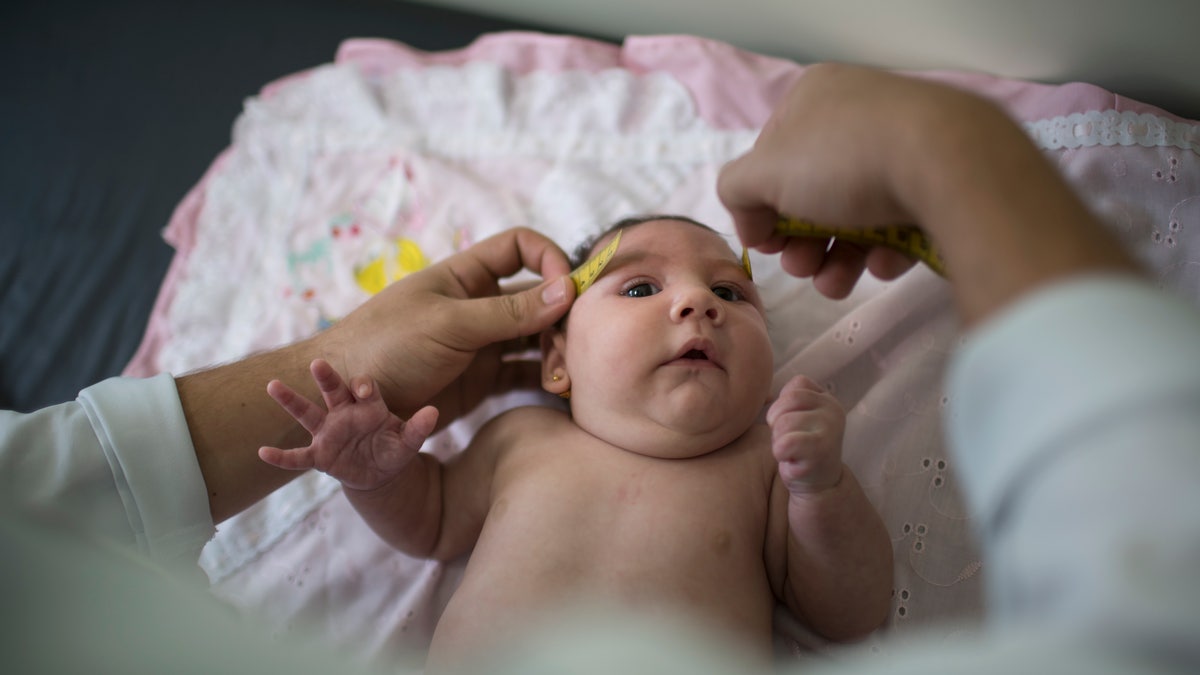
In this Dec. 22, 2015 photo, Luiza has her head measured by a neurologist at the Mestre Vitalino Hospital in Caruaru, Pernambuco state, Brazil. Luiza was born in October with a head that was just 11.4 inches (29 centimeters) in diameter, more than an inch (3 centimeters) below the range defined as healthy by doctors. Her rare condition, known as microcephaly, often results in mental retardation. (AP Photo/Felipe Dana)
The suspected number of cases of microcephaly, a rare brain defect in babies, continues to rise in Brazil, reaching 3,893 since authorities began investigating the surge in October, HealthMinistry officials said Wednesday.
Fewer than 150 cases of microcephaly were seen in the country in all of 2014. Brazil's health officials say they're convinced the jump is linked to a sudden outbreak of the Zika virus, a mosquito-borne disease similar to dengue, though the mechanics of exactly how the virus affects the babies remain murky.
Babies with microcephaly have smaller than normal heads and their brains do not develop properly. Many fetuses with the condition are miscarried, and many others die during birth, or shortly after. Babies with the condition who survive tend to suffer from developmental and health problems.
Speaking Wednesday at a news conference in the capital, Brasilia, the ministry's emergency response official, Wanderson Oliveira, said that the reported cases are being investigated to determine whether they are really cases of microcephaly.
He said most of the cases of microcephaly remain concentrated in Brazil's poor northeastern region. However, the developed southeast where Rio de Janeiro and Sao Paulo are located is the second hardest-hit region.
Another official, Claudio Maierovich, who heads the ministry's transmissible disease department, stressed that Brazil was working to ramp up its capacity to test for Zika virus and are also trying to develop a vaccine against the illness. He said such a vaccine would likely take three to five years to develop.
Brazil is not the only country in the region hit by a Zika outbreak. The U.S. Centers for Disease Control and Prevention last week issued an alert advising pregnant women to avoid traveling to Brazil and several other countries in the Americas where Zika outbreaks have occurred.




















